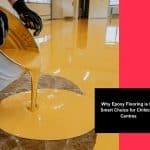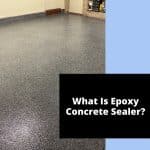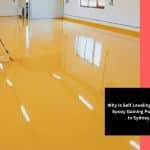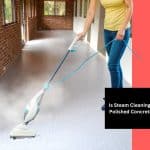Sometimes, walkways can be a hassle with all the slippery paths, especially during the rainy season. Imagine that idyllic scene turning into a hilarious (for everyone else) slip-and-slide on your rink of a walkway. It’s not exactly great to watch. Luckily, there’s a way to seriously up your home’s safety: slip resistant coatings for walkways! But are they the real deal? Explore the world of slide-proofing your walkways with these special layers!
Why is slip prevention important around walkways?
Those concrete and paver walkways that look so nice in summer? Yeah, they turn into total wipeout zones when it comes to the rainy season. Algae and skiddy pathways– a recipe for disaster for your ankles. Boots aren’t exactly known for their grippy powers on wet surfaces either.
The good news is, there’s a way to stop your walkway from turning into a personal slip-and-slide. These varnishes are like tiny helpers working undercover, giving your walkway some serious traction. This is especially helpful for folks who might be more prone to tumbles, like kids, grandparents, or anyone who feels a little less steady on their feet.
Traditional walkway solutions and their limitations
Sure, concrete and pavers are totally budget-friendly and tough, which is why so many people use them for walkways. But here’s the thing: they turn into rinks when the season rolls around!
Some folks try those textured pavers or bumpy layers for more grip, but they wear down over time and can feel weird under their feet in regular shoes. This is not ideal for safety.
How do slip resistant coatings work?
These are like tiny helpers working undercover on your walkway. They modify the surface finish, creating more friction for your feet, even when wet or icy. Here’s a guideline on how they achieve this:
- Texture Power: These are packed with fine sand or quartz particles, making the surface slightly rougher and grippier for footwear.
- Chemical Champions: Some use a special chemical reaction to create a microscopic texture on the surface, improving grip.
The perks of slip resistant coatings
The benefits of using these on your walkway go far beyond just preventing accidents. Here are some trump cards:
- Safer steps: No more wipeouts! These seriously cut down on slips and falls, especially for the little ones, grandparents, or anyone who feels a bit unsteady.
- Peace of mind: Make your walkway safer and you won’t have to worry about anyone arguing with you if they take a tumble. Win-win!
- A win: With a grippy surface, you can strut your stuff outside even after a heavy rain. Rain won’t stop you from enjoying the outdoors!
- Easy clean up: Forget scrubbing for hours! These are way easier to clean and maintain than plain concrete. Plus, they’re more stain-resistant and less likely to get gross from all that salt you use to melt ice.
To ensure these benefits translate into long-lasting safety, focusing on slip resistance standards when choosing a coating is crucial. This ensures the chosen product meets established guidelines for preventing slips and falls.
Finding the right coating for your walkway
There are a bunch of different non-slid coats out there, so choosing the right one takes a little thinking. Here’s the lowdown:
- Toughness: Think about how much foot traffic your walkway gets and pick one that can handle it. No point in getting something wimpy that’ll wear out fast.
- Sunshine soldier: Some don’t like the sun too much. Opt for one that’s UV resistant so it lasts a long time.
- Style points: These come in all sorts of pigments and finishes, so pick one that looks good with your house. And! With customising the look of your walkways with colours and patterns is a fun option!
- Slip and slide rating: Look for a high “non-slid” rating. There are tests done to measure this, so check those out.
Now, you need also to check the types of varnish used for walkways:
- Acrylic armor: This is the budget-friendly option that works well and is easy to apply yourself. Think of it as the duct tape of slip resistance. But, like duct tape, it might need replacing more often.
- Epoxy exoskeleton: This stuff is super tough and provides excellent grip. It’s like a superhero suit for your walkway, but it can be pricier and requires a pro to put it on.
- Polyurea power shield: This is the top dog when it comes to toughness. It can handle anything you throw at it, but it’s also the most expensive and requires a specialist to apply. Think of it as having Iron Man himself come and build your walkway!
Maintaining walkway slip resistant coatings
Even the best hero needs a little TLC to stay on top of their game, and these are no different! Here’s how to keep them working their magic all winter long:
- Clear the way: After a heavy rain, don’t forget to grab your shovel or any tool and clear away all that build-up algae.
- Regular scrub-a-dub: Give a regular wash with some mild soap and water. This washes away dirt, debris, and all that gross salt you use to melt ice. But skip the harsh chemicals, they’re not good for the surface.
- Eagle eye: Every now and then, take a closer look for any cracks or peeling. Patch those up fast to keep it grippy and prevent further damage.
- Freshen up: Over time, it will wear down and need a new layer. How often depends on the type you applied, how many people use it, and how brutal the season is.
Can this be applied to existing walkways?
The good news is you can often slap these right on your existing walkway, saving you time and cash on a total overhaul. But there are a few things to consider first:
- Surface check: The walkway gotta be in good shape – no cracks, loose bits, or paint. Basically, a clean slate.
- Sticky situation: Some need a surface that’s a bit like a sponge to grip on properly.
- Drainage duty: The walkway’s slope should be good for water and melted snow to drain away, otherwise things can get a little slippery.
If you’re not sure if your walkway is a good fit, don’t worry! Just call in a pro to take a look and give you the right advice on the non-slid upgrade. For an acquired long-term solution, consider residential epoxy flooring still the best option for safety.
Cost considerations of slip resistant walkways
The expense of installing this non-slids will vary depending on several factors:
- Walkway size: Bigger walkway equals more materials and time, plus can be pricey.
- Material of choice: There are different types, like budget-friendly acrylic or super-tough polyurea. It may last longer but costs more.
- DIY vs. pro: You can try doing it yourself, but a professionals will be faster and make it last. Obviously, paying them costs more, but a great expenditure!
Don’t let the price tag scare you off at first. Think of it as more of an investment in your home safety during the rainy months. You’ll be way less stressed about surprise wipeouts, and won’t have to spend all your time maintaining the walkway or fixing any injuries from falls. In the long run, it could even save you a quid!
Are slip resistant coatings right for your walkway?
Totally depends on what you value most. If safety is your number one concern, then these coatings are a total win. They seriously cut down on slips and falls, and come with a bunch of other perks too. Basically, they make your walkways way safer and easier to use all rainy season long.
Think your walkway needs a winter makeover? Ultimate Epoxy Flooring is your one-stop shop for awesome slip-resistant coatings! Our crack team of experts can help you pick the perfect coating for your walkway, and make sure you will have the safety you need and we will apply it right so it will last!
Get ready to change your pathway into slip-free! Get a free quote from Ultimate Epoxy Flooring today and transform your walkway into a safe and stylish walkway!







